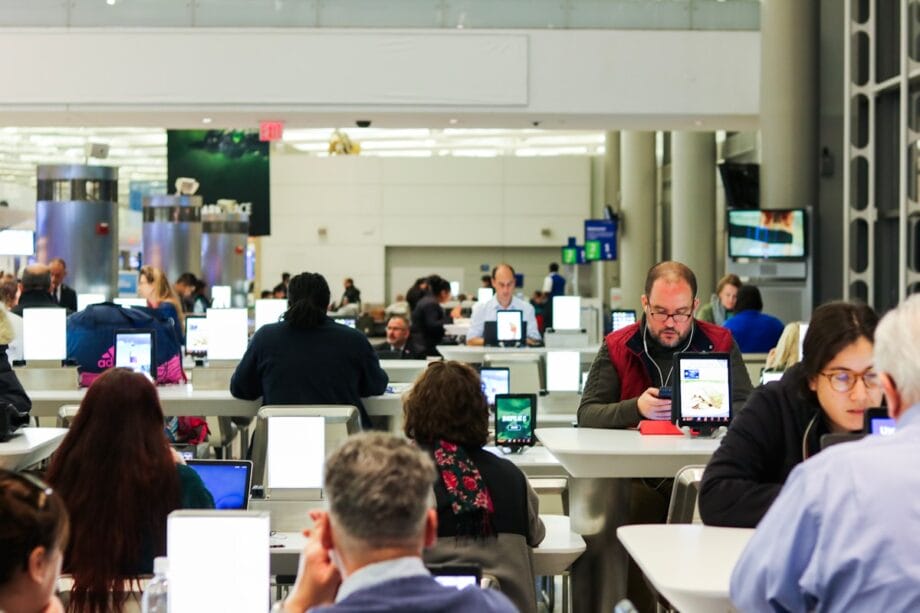A cyber assault has significantly disrupted the operations of a service provider responsible for check-in and boarding systems. Travellers at several prominent European airports, including London’s Heathrow, the continent’s busiest hub, have faced extensive flight delays and cancellations.
Collins Aerospace, an American enterprise specializing in aviation and defense technology, administers check-in and boarding systems for numerous airlines at various air transport facilities worldwide. Reports indicate that the attack impacted Heathrow Airport, along with Brussels Airport and Berlin Airport.
Flight Cancellations Surge
Brussels Airport announced on its website that the incident transpired on Friday night. The assault has incapacitated all automatic systems, compelling reliance on manual check-in and boarding procedures.
Currently, 10 flights have been canceled with an average delay of one hour affecting all departing flights. The airport noted, “This has a significant impact on the flight schedule and will regrettably result in further delays and cancellations… The service provider is diligently addressing the issue.”
Furthermore, Berlin Airport displayed a banner stating, “Due to a technical issue with a system provider operating across Europe, there are extended waiting times at check-in. We are urgently working to resolve this.”
In contrast, a spokesperson from Frankfurt Airport, Germany’s largest, confirmed that it remains unaffected. Additionally, an official from Zurich Airport’s operations control center reported no impact there either.
Delta Air Lines expressed expectations of minimal disruption for flights departing from the impacted airports, noting that it has implemented a workaround to reduce inconvenience.
Among major European airlines, EasyJet reported normal operations, anticipating no impact on its flights for the remainder of the day.
RTX, the parent company of Collins Aerospace, acknowledged awareness of a “cyber-related disruption” affecting its software at select airports.
RTX stated, “The impact is confined to electronic customer check-in and baggage drop, and can be moderated through manual check-in operations.”
In the meantime, passengers booked on flights for Saturday have been urged by the affected airports to confirm travel details with their respective airlines prior to arriving at the airport.
Cyber vulnerabilities in Airports
A centralized system breach, impacting multiple airports simultaneously via a shared vendor, is presumed to be the cause of the disruption. The infrastructure utilized by client airports is predominantly cloud-based or interconnected. There has been no official attribution to a specific ransomware entity.
So far, the incidents of 2025 have unequivocally highlighted that the aviation sector is increasingly vulnerable to cyber threats. In late June 2025, Qantas Airways detected unauthorized activities on a third-party platform associated with its contact center.
The airline verified the breach in early July, noting similarities to intrusions linked to the Scattered Spider group.
Qantas later updated its disclosure, confirming that personal data of approximately 5.7 million customers had been compromised. Around 4 million records included names, email addresses, Frequent Flyer details, tier level, points balance, and status credits.
The remaining 1.7 million records contained combinations of addresses, phone numbers, dates of birth, gender, and meal preferences.

In the same month, WestJet Airlines reported a cyber incident that disrupted aspects of its digital infrastructure. Hawaiian Airlines also acknowledged being affected by a cybersecurity event, though neither reported a threat to flight safety.
Numerous hacking collectives are situated in Russia or other post-Soviet states, some believed to have affiliations with the Russian government. Conversely, law enforcement has executed multiple arrests in other regions, with British and American youths implicated in major cyber-attacks targeting Las Vegas casinos, M&S, Co-op, and Transport for London.
Source link: Cryptorank.io.





